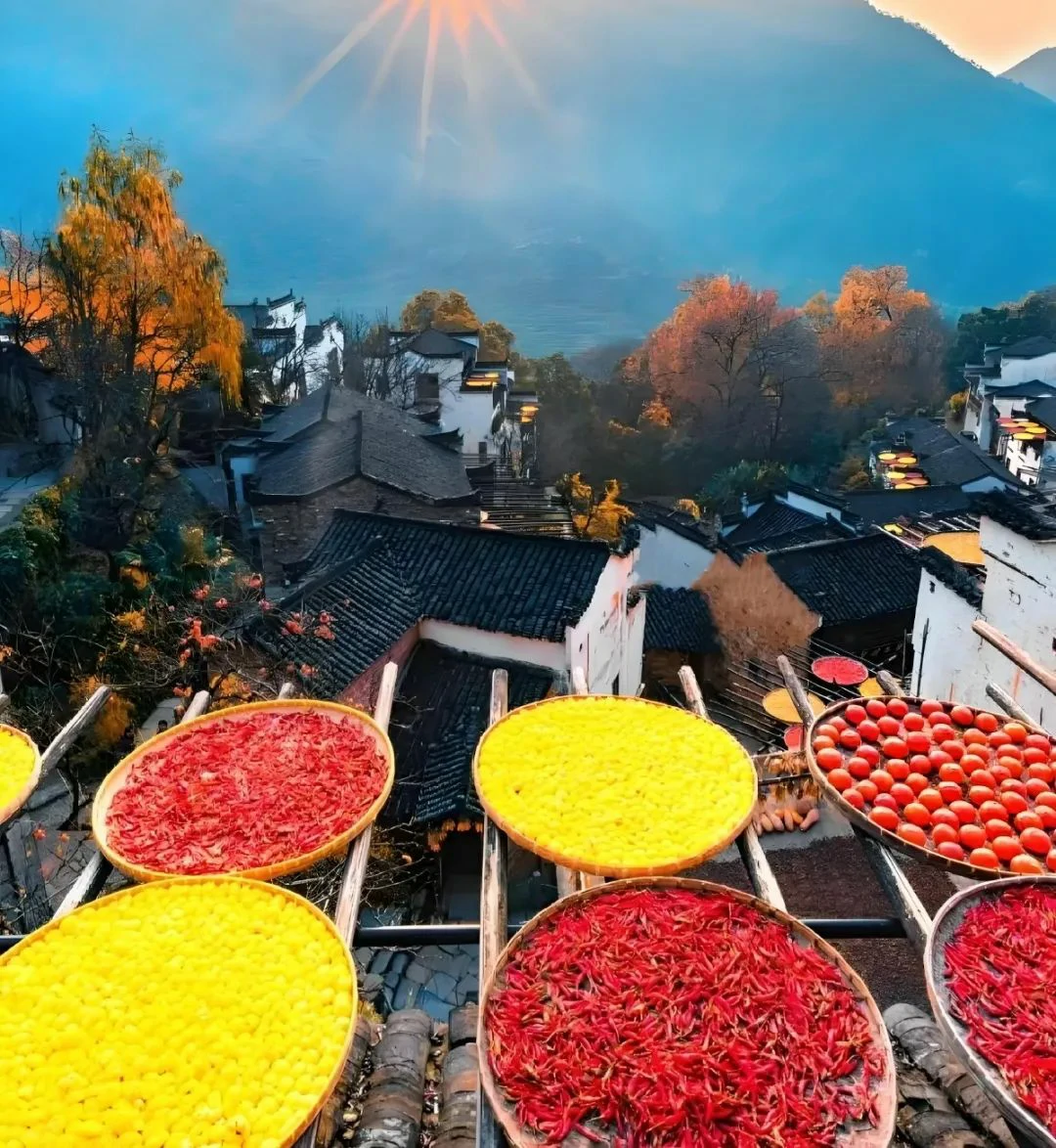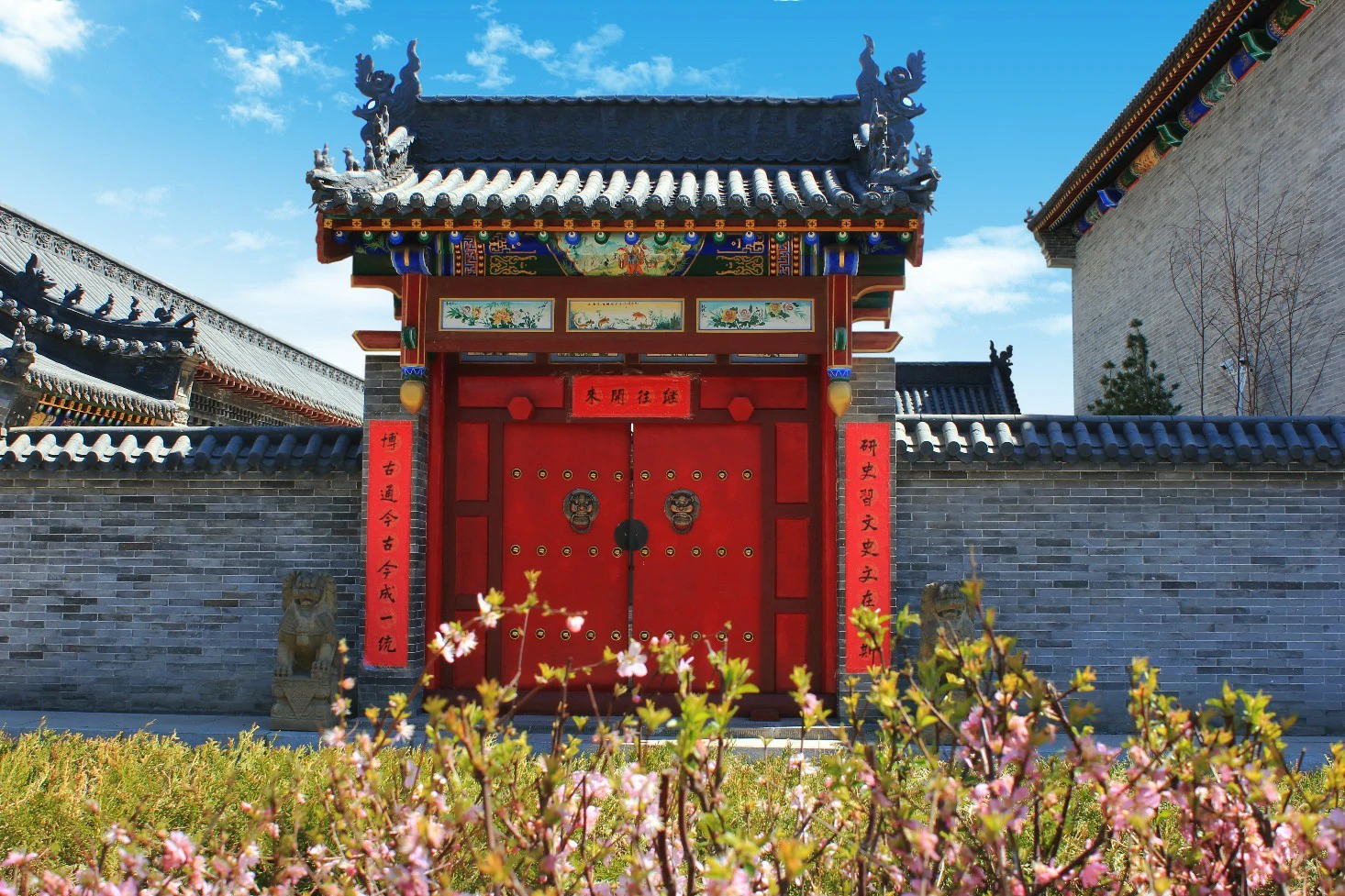Chinese Culture
The 24 Solar Term: Beginning of Autumn
When the sun crosses the celestial longitude of 135° on August 7, 2025, nature quietly begins autumn's prelude.
As one of the "Four Commencements" in China's 24 solar terms, Liqiu (Beginning of Autumn) marks not just a climatic turning point—where summer heat yields to crisp air—but also embodies the agricultural wisdom of "grain ripening."
At this threshold between seasons, let us embrace an ancient invitation to both introspection and harvest, guided by millennia of celestial rhythm.

Liqiu (Beginning of Autumn) carries profound historical significance dating back to the Zhou Dynasty (1046-256 BCE). On this day, the emperor would lead nobles and officials to the western suburbs for the Autumn Welcoming Ceremony, offering sacrifices to Shaohao (the Celestial Deity of the West) and Rushou (the God of Harvest).
This ancient ritual reflects:
1️⃣ Harmony with nature – Formal acknowledgment of seasonal transition
2️⃣ Agricultural reverence – Rushou's association with autumn harvests
3️⃣ Cultural legacy – Institutionalized celestial observance
The ceremony's western orientation symbolically aligned with autumn's elemental metal and directional associations in Chinese cosmology.
Liqiu's significance grew alongside calendar system developments. As Dong Zhongshu noted in Han Dynasty's Luxuriant Dew of the Spring and Autumn Annals: "The Autumn Equinox balances yin and yang, bringing equal day/night and moderate temperatures." Though describing the equinox, this reflects ancient China's precise seasonal understanding.
Three Phenological Signs of Liqiu

The ancient Chinese divided Liqiu (Beginning of Autumn) into three pentads, each vividly capturing nature's subtle transformations during this season-like movements in a beautiful symphony of nature.
Summer’s scorching winds are gone—now gentle breezes bring the first cool hints of autumn. Like soft messengers, they sweep over the land, chasing away summer’s leftover heat and bringing the long-awaited refreshment and calm we’ve been waiting for.
As day-night temperature differences grow, a layer of crystal-clear dew forms on the ground and plants each morning. These dewdrops, like nature’s inlaid pearls, shimmer with colorful light in the sun. They are autumn’s tears, holding nostalgia and reluctance for summer.
Autumn cicadas are unique to fall. Unlike the noisy summer ones, their chirps feel more desolate and mournful. In the third pentad after Start of Autumn, they seem to sense the shifting seasons—singing earnestly on branches, as if making a final farewell to the world.
Traditional Customs of Liqiu


Beyond marking a seasonal transition, Liqiu has evolved into a festival rich with traditions. Over centuries, these customs have crystallized ancient wisdom and humanity's eternal yearning for harmony with nature.
On the Start of Autumn, many regions follow the custom of "biting autumn." Families gather to munch on big slices of watermelon bought specially for the occasion. This tradition symbolizes seizing autumn’s coolness as the sweltering summer fades, dispelling the heat and welcoming the arrival of harvest.
After enduring the long, draining summer, people often suffer from weight loss and fatigue. Thus, on the Start of Autumn, there’s a folk custom called "sticking autumn fat." People eat various nourishing foods like braised meat, roast duck, and stewed fish to replenish the energy depleted in summer, preparing the body for the coming winter.
In some mountainous areas, due to complex terrain and scarce flat land, villagers dry their crops by spreading or hanging them in courtyards, on windowsills, or across roof frames around their homes. Over time, this practice has evolved into a traditional farming custom known as "autumn drying."
*For deeper insights into China’s cultural heritage and the latest study in China information, please follow EDUPRCHINA.

Trending Articles
0 Comments
Popular Articles

Xi'an Shiyou University empowers Central Asian students, bridging cultures
July 9, 2025

Spring 2026 Chinese Programs Choose from Three Cities
January 26, 2026

11th Nishan Forum on World Civilizations kicks off
July 9, 2025

How does Students under 18 Apply to Study in China
June 3, 2025

Unleash Your Global Leadership Potential in Beijing Normal Uni
June 9, 2025

Immerse Yourself in Chinese: Spring 2026 in Hohhot
February 3, 2026









